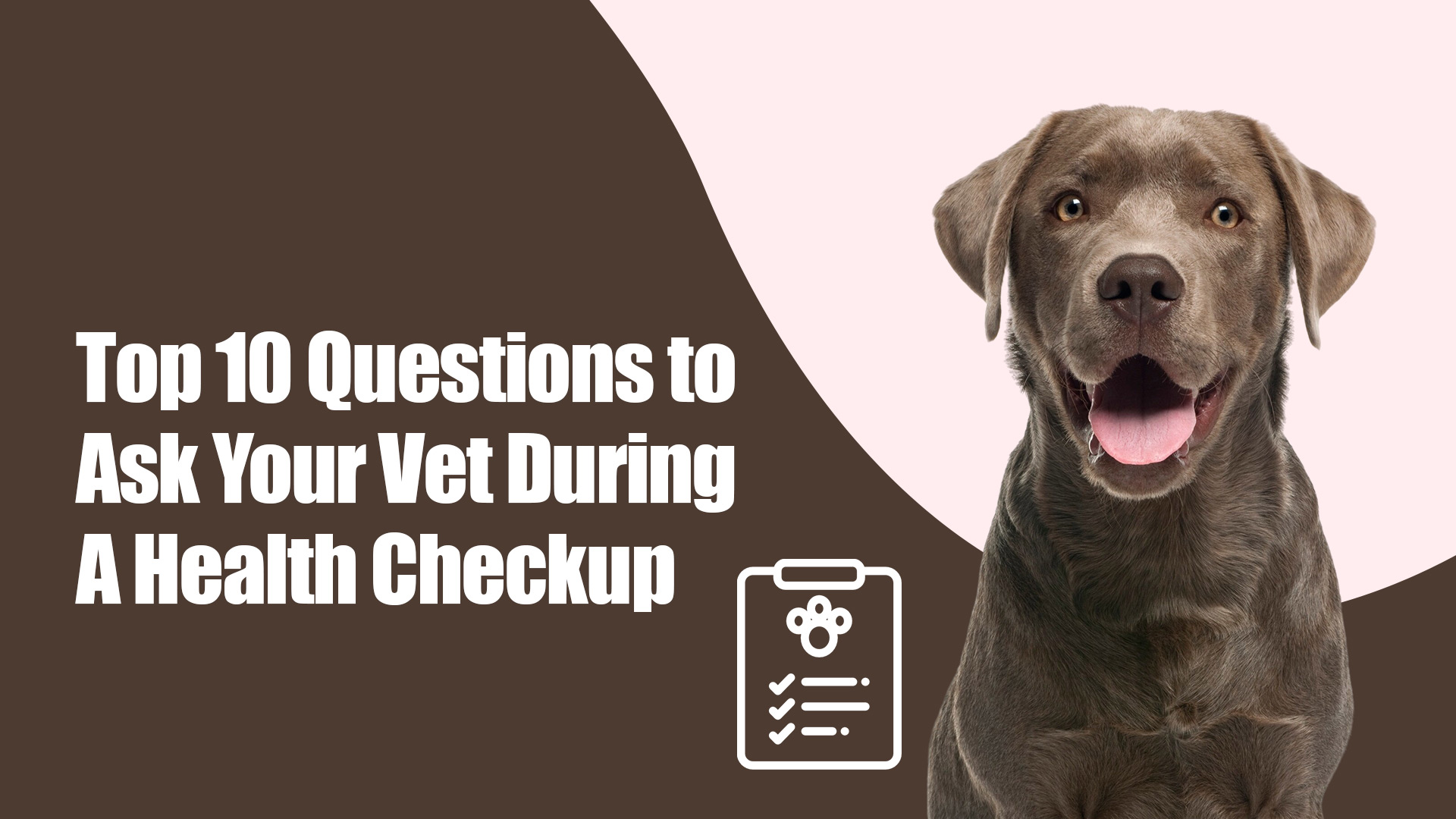Why Regular Vet Check-Ups Are Important for Your Dog’s Health
As pet parents, we all want our dogs to live long, healthy, and happy lives. But beyond cuddles and walks, one of the most important things you can do for your furry friend is ensure regular veterinary check-ups. These visits aren’t just for when your dog is sick—they’re crucial for prevention, early detection, and overall well-being.
The Importance of Preventative Health Care for Dogs
Routine vet visits help detect hidden health problems before they become serious. From managing weight and diet to monitoring behavior and vaccinations, preventive care is the backbone of your dog’s health.
How Vet Check-Ups Contribute to Your Dog’s Long-Term Health
Just like us, dogs benefit from a consistent health record. Regular check-ups provide your vet with insights into any changes in your dog’s body, behavior, or biology, allowing for personalized care tailored to their specific needs.
10 Questions to Ask Your Vet During a Health Check-Up
Going to the vet with a list of important questions to ask your vet can help you make the most of each visit. Whether you have a senior dog or a new puppy, asking the right questions ensures you’re supporting your dog’s health every step of the way.
1. What Vaccines Does My Dog Need and When?
Vaccinations are key to preventing serious illnesses like rabies, parvovirus, and distemper. Ask your vet for a schedule based on your dog’s age, breed, lifestyle, and region.
2. How Is My Dog’s Weight and Diet?
Obesity in dogs can lead to joint issues, heart disease, and diabetes. Ask your vet if your dog’s current food and feeding schedule are appropriate for their size, breed, and energy level.
3. Are There Any Signs of Fleas, Ticks, or Other Parasites?
Fleas, ticks, and worms can affect even the cleanest dogs. Your vet can check for signs and recommend preventative treatments to protect your dog year-round.
4. How Are My Dog’s Teeth and Gums?
Dental health often gets overlooked, but it’s vital. Poor oral hygiene can lead to infections and organ damage. Ask if a professional cleaning or at-home care routine is needed.
5. Does My Dog Have Any Allergies or Sensitivities?
Itchy skin, ear infections, or digestive issues could indicate allergies. Your vet can help identify triggers and recommend food or lifestyle changes.
6. How Is My Dog’s Exercise and Activity Level?
Every dog has different activity needs. Ask if your dog’s current exercise routine is enough—or too much—for their age and breed.
7. What Preventative Medications Does My Dog Need?
From heartworm preventatives to tick collars, there’s a range of medications dogs need regularly. Get clarity on which ones your dog should be on based on their environment and health status.
8. Are There Any Signs of Aging or Degenerative Diseases?
For older dogs, it’s crucial to monitor for signs of arthritis, cognitive decline, or organ issues. Early intervention can drastically improve quality of life.
9. What Should I Know About My Dog’s Behavior and Mental Health?
Behavioral changes can indicate stress, pain, or illness. Ask your vet to help you understand what’s normal and when it might be time for training, socialization, or medical support.
10. Are There Any Genetic Conditions I Should Be Aware of?
Some breeds are prone to specific conditions. Ask about inherited risks and any special care or screening that might be recommended.
Factors to Consider When Discussing Health Check-Ups with Your Vet
Age and Breed-Specific Needs
A senior Labrador has different health needs than a young Shih Tzu. Breed and age-specific questions help you get customized advice.
Preventative Care and Early Detection
Discuss routine screenings, blood tests, or X-rays that can catch problems early—even before symptoms appear.
Emergency Preparedness and Medical History
Keep your dog’s medical records updated. Ask what to do in emergencies, and if your dog has any conditions that might need special attention.
Pros and Cons of Regular Vet Health Check-Ups
Pros: The Benefits of Regular Health Check-Ups for Dogs
- Early disease detection
- Tailored nutrition and lifestyle guidance
- Peace of mind for pet parents
- Stronger immunity through scheduled vaccinations
Cons: Possible Drawbacks or Considerations
- Cost (though many clinics offer wellness packages)
- Anxiety in pets (which can be reduced with proper prep)
- Time commitment (but well worth the investment)
How to Prepare for Your Dog’s Health Check-Up
Step 1: Gather Your Dog’s Medical History and Records
Bring vaccination cards, previous prescriptions, and notes about your dog’s health or behavior changes.
Step 2: Make a List of Questions and Concerns
Don’t rely on memory—write down key questions to ask a veterinarian so nothing is missed during your appointment.
Step 3: Monitor Your Dog’s Health Leading Up to the Appointment
Note changes in appetite, energy levels, bathroom habits, or skin condition—these details can be helpful to your vet.
Conclusion
Your vet is your biggest ally in ensuring your dog’s health, happiness, and longevity. Whether you’re a seasoned pet parent or have a new puppy at home, never hesitate to ask important veterinarian questions for dogs.
Zigly’s expert vet team is here to make every check-up count with compassionate care, personalised advice, and a wellness-first approach. Book your next health check-up at Zigly Vetcare and take the first step toward a healthier tomorrow for your pet. After all, your questions today could prevent problems tomorrow.
FAQs:
1. What should I do if my dog is afraid of the vet?
Use positive reinforcement and bring their favorite toy or treat. You can also try visiting the clinic for a stress-free walk-in to build comfort.
2. Are there specific health tests my dog should have regularly?
Yes. Depending on age and breed, vets may recommend blood work, heartworm tests, stool analysis, and dental exams.
3. How can I tell if my dog needs to see the vet outside of check-ups?
Sudden behavioral changes, loss of appetite, vomiting, or skin issues are all signs your dog needs medical attention.
4. Should I discuss my dog’s diet during the health check-up?
Absolutely. Diet is a cornerstone of health. Bring details about what and how much your dog eats for more accurate advice.
5. What vaccinations are necessary for my dog based on their lifestyle?
Core vaccines like rabies and distemper are essential, while lifestyle-based vaccines like kennel cough may be recommended for social or boarding dogs.










